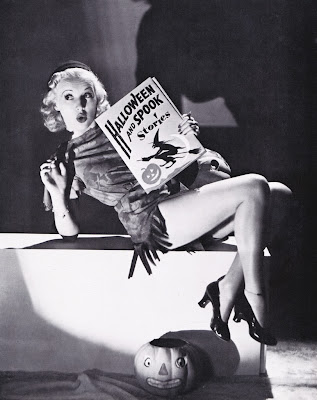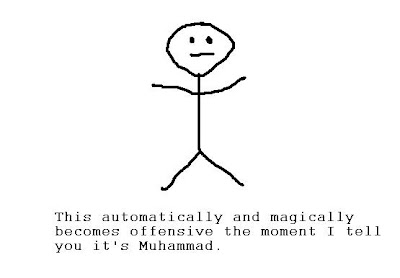Starring: Bob Hope, Willy Best, Paulette Goddard, Paul Lukas, and Anthony Quinn
Director: George Marshall
Rating: Seven of Ten Stars
A risk-taking radio reporter (Hope) and his butler Alex (Best) set out to protect an heiress (Goddard) when it seems a sinister Cuban businessman (Lukas) is going to try to scare her out of her ancestral home with a fake haunting.
"The Ghostbreakers" is a fast-paced, messily plotted horror comedy that has Bob Hope playing an oddly contradictory character--one who constantly talks about how scared and cowardly he is, but who invariably chooses the most direct and dangerous path toward problem solving at every opportunity. He is ably supported by Willie Best, who plays his man-servant and is slightly more prone to fear than his boss but who also seems to be a little smarter; and by Paulette Goddard, the chipper and stubborn heiress who refuses to be intimidated and who doesn't understand the meaning of the word "no." This trio of performers play fabulously off each other, each displaying fine perfect timing and switching back and forth between the roles of "straight man" when the jokes are flying.
The comedic performances of the stars is both enhanced and contrasted by stylish and moody cinematography and great sets that puts a number of straight horror movies from the 1940s to shame (including some of Universal's later Mummy pictures and all the "House of..." monster mashes). A number of sequences would be perfectly at home in a horror film, such as when the characters arrive on the island housing the haunted castle, and the one where Paulette Goddard is stalked by a zombie.
Unfortunately, the excellent cast and crew are laboring in the service of a badly done script. While each joke and comedic set-piece are funny by themselves, the plot that links them together is so badly constructed that it can't even be described as flimsy. Several of the red herrings obscuring who the true bad guy is are left to just flop around on the floor without any tie-in whatsoever to anything else that's going, and no explanation is offered as to how the weird caretaker of the castle and her zombie son fit into things. Presumably, they are in league with the villain, but that's never made clear, nor is there any sort hint provided to whether the son truly is a zombie or not. Worse, the zombie is the object of one of films pure moments of slapstick when within this space of a few minutes it manages to put on (or be placed in) a suit of armor and ambush Hope and Best with a morning star. Did the zombie disguise himself? Did his mother? Did the villain? It's just one of many disconnects in the film that cause its second half and conclusion to be less-than-satisfying.
Speaking of zombies and disconnects, this is one of those films I've heard is supposed to be racist through and through, because Willie Best plays a character that is a spooked black servant who is the butt of a number of jokes from Bob Hope. However, if one actually watches the movie, one sees that Best's character actually gives as good as he gets--lobbing more than just a few zingers Hope's way--and is no more or less cowardly or scared than any other character in the film. Yes, he's a clear-cut comedic figure in the film, where Hope swings between comedic and heroic, but he stands watch over the lady in distress even while knowing a killer is on the prowl, and he joins with Hope in a physical fight against the zombie. I had the same reaction to this film as I had to "King of the Zombies", another film featuring a supposedly horribly racist portrayal of a black character, but in actually watching the film, the black servant turns out to be the brightest character in the film. (Admittedly, the Mantan Moreland-portrayed character in that film is the stereotypical "scared negro servant" who happens to be working for a racist moron.)
And in both those supposedly racist films, the racist stereotypes are mild when compared to black characters in modern films, such as the over-sexed, loudmouth cop that Chris Tucker portrayed in the "Rush Hour" series, or just about any film you care to mention that has featured a rapper or former rapper trying his hand at acting. It seems to me that some commentators should actually try watching this movies instead at coming at them with preconceived notions.
Despite its flaws, "The Ghostbreakers" is an entertaining comedy in the "creepy old house" vein that lovers of that sub-genre would do well to check out. Bob Hope fans will likewise find the film interesting, as the character he portrays is a little different from what emerged later once his comedic film persona was firmly established. All in all, it's a movie that should bring extra fun to the Halloween season.
































.jpg)
